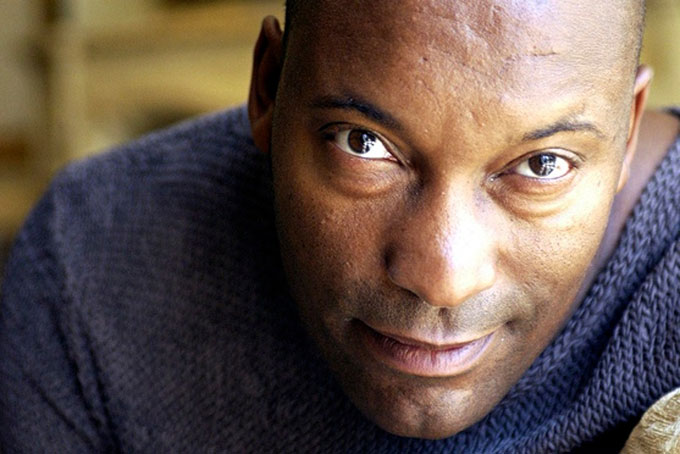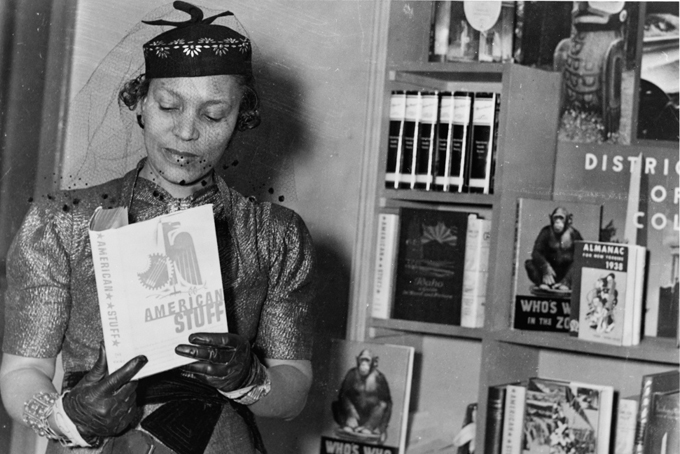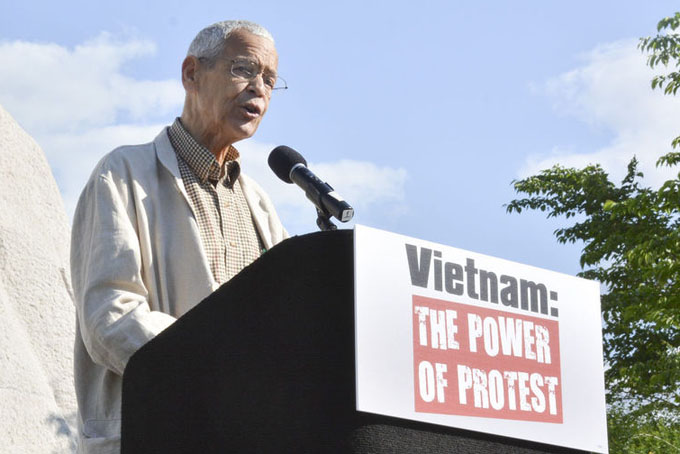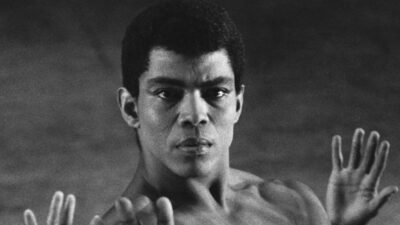This Week In Black History January 3-9, 2024
ALVIN AILEY
1621—The first Black child is born in America. He was named William Tucker and he was born on a plantation in Jamestown, Va. His parents were Anthony and Isabella, who were among the first group of Black indentured servants (later slaves) brought to the American colonies in 1619. Indentured servants could work off so-called contracts and become free. But after 1619, all Africans brought to America were classified as slaves and only Whites were treated as indentured servants. (There is some dispute over the year of William Tucker’s birth. But it appears he was born in 1621 and Baptized in 1624.)
1966—One of the most tragic and senseless events of the Civil Rights Movement occurs. Sammy Younge Jr. is shot and killed in Tuskegee, Ala., by White service station attendant Marvin Segrest for using the “Whites Only” restroom at the service station where Segrest worked. Younge was a 21-year-old Tuskegee Institute student and civil rights activist.
1777—Prince Hall, founder of the first Black Masonic lodge in America, petitions the Massachusetts legislature for funds to allow free Blacks to return to Africa. The petition was rejected and Hall went on to become a major leader in Boston’s Black community, as well as develop a nationwide influence by helping develop Black Masonic temples around the country.
1901—C.L.R. James is born on the West Indian island-nation of Trinidad. James is one of those not well known figures who greatly influenced radical Black intellectual thought from the 1930s to the 1970s. He was a Marxist who traveled the world advocating socialism and influencing developments in the Caribbean, the United States and England. James died in 1989.
1920—The legendary National Negro Baseball League is organized in Kansas City, Kan., by the “father of Black baseball,” Rube Foster. It is not widely known that under the 6’4” Foster’s leadership, not only did more than 4,000 Blacks get a chance to play professional baseball during the days when they were not allowed to play in the White-controlled major leagues but the Negro Baseball League became one of the largest Black-owned businesses in America. The teams represented Black communities and had major followings. They had names like the Pittsburgh Crawfords, the Homestead Grays, the New York Black Yankees, the Birmingham Black Barons, the Chicago American Giants and the Atlanta Black Crackers. One of the unfortunate side effects of integration was the destruction of many Black businesses. Thus, when the White leagues broke the color barrier and hired Jackie Robinson in 1947, the Negro Baseball League gradually began to decline. Most of the teams were gone by 1960.
1911—Kappa Alpha Psi Fraternity is formed at Indiana University. It goes on to become one of the nation’s leading Black Greek-letter organizations.

1931—World famous choreographer Alvin Ailey is born in Rogers, Texas. During his life Ailey created more than 70 ballets. He died in 1989.
1943—Agricultural scientist George Washington Carver dies. Carver was renowned for his ability to develop new uses from everyday products. Indeed, he developed more than 300 products from the peanut and the sweet potato. He spent his professional career at Tuskegee Institute in Alabama and was nicknamed the “Wizard of Tuskegee.” Carver is credited with helping to revolutionize American agriculture.
1820—The first organized return of a group of U.S. Blacks to Africa takes place. Records indicate that between 85 and 90 free Blacks boarded a ship in New York Harbor on this day for return to the “Motherland.” Ironically, the ship was named the “Mayflower to Liberia.” However, the Blacks actually went to British controlled Sierra Leone and, along with former British slaves. helped to found that nation.

1968—Movie director and screenwriter John Singleton is born in Los Angeles, Calif. Singleton was perhaps best known for his directing of the controversial movie “Boyz N The Hood.” For the film, he was nominated for the Academy Award for Best Director, becoming the first African American and youngest person to have ever been nominated for the award.
1993—Famed Jazz musician John Birks “Dizzy” Gillespie dies. He was an outstanding trumpeter and band director who also helped to create Bebop Jazz.
2003—Mamie Till Mobley dies at 81. She was the mother of Emmet Till, whose lynching at age 14 became one of the events which gave life and angry energy to the early years of the Civil Rights Movement. Till was tortured and killed for allegedly whistling at a White woman while on a trip to Mississippi. Amazingly the men who killed Till were found not guilty by an all-White jury, but the two would later brag to Look magazine that they had actually murdered Till.
From 4th Century AD—Ethiopian Christmas—known as Ganna—is celebrated on Jan. 7. Ethiopian Christianity was much closer to the Christian Coptic Church of Egypt and as a result never incorporated many of the dictates of the early Roman Catholic Church. Thus, a plausible argument can be made that Ethiopian Christianity is more pure (or less corrupted) than that which emerged from the early Christian Church in Europe. Regardless, the best scientific speculation is that Jesus was born neither on Dec. 25 nor Jan. 7. The most probable month of his birth is April.

1891—Zora Neale Hurston is born in Eatonville, Fla. She became one of the central figures in that great African American cultural movement known as the Harlem Renaissance. She excelled as a writer, folklorist and anthropologist.

1955—Marian Anderson debuts on this day at the New York Metropolitan Opera House as Ulrica in Verdi’s operate “Mask Ball.” She was the first African American to perform such an opera at a major opera house.
1866—Fisk University is founded in Nashville, Tenn., for recently freed slaves by the American Missionary Association. The college grows to become one of the leading Black institutions of higher learning in America by graduating several figures that played major roles in Black cultural, political and entertainment life.
1961—Calvin Smith, Hall of Fame track and field athlete, was born in Bolton, Miss. Smith ran track at the University of Alabama and in 1983 broke the 15-year-old world record in the 100 meter race. He went on to win a Gold medal as part of the United States 4 x 100 meter relay team at the 1984 Los Angeles Olympic Games and a Bronze medal in the 100 meter race at the 1988 Seoul Olympic Games.
1906—Poet and novelist Paul Lawrence Dunbar dies. Born in Dayton, Ohio, Dunbar rapidly gained national recognition as a poet. Although he only lived to be 33, he was prolific—writing short stories, novels, plays and songs. In Dayton, he was a classmate of the Wright brothers of aviation fame. In fact, the Wright brothers helped Dunbar finance his newspaper—the Dayton Tattler.

1935—Black Enterprise magazine founder and publisher Earl Graves Sr. is born on this day in Brooklyn, N.Y.
1946—Poet Countee Cullen dies at age 42 in New York City. Cullen was one of Black America’s greatest poets and novelists. One of his most controversial works was “The Black Christ & Other Poems.” He was born in 1903. But some mystery surrounds exactly where he was born with both Baltimore and New York City being given as his place of birth. Cullen also taught high school. One of his best known students was the great writer James Baldwin.

1967—The Georgia legislature finally seats Representative Julian Bond. In an amazing anti-democracy display of arrogance, Georgia legislators had refused to allow Bond to take the seat he had duly won because of his opposition to the U.S. war in Vietnam. But a 1966 U.S. Supreme Court ruling declared their action unconstitutional. Bond later became chairman of the NAACP Board of Directors.

